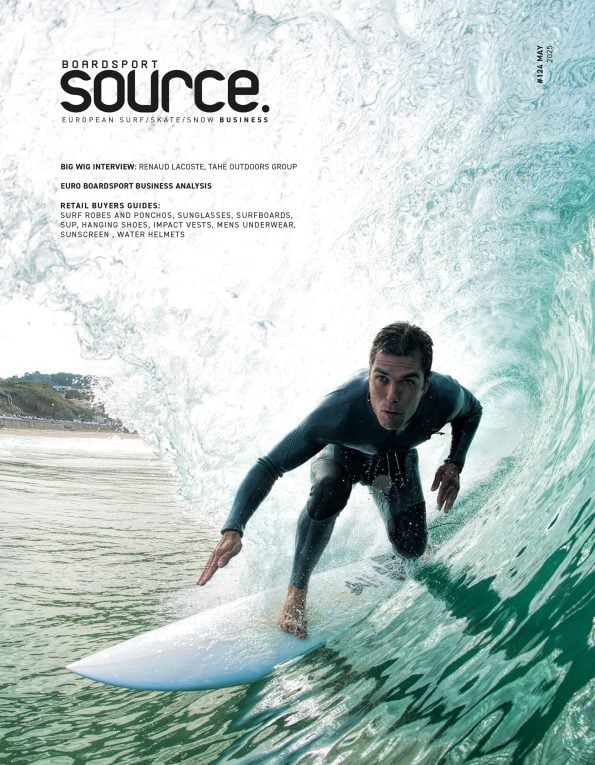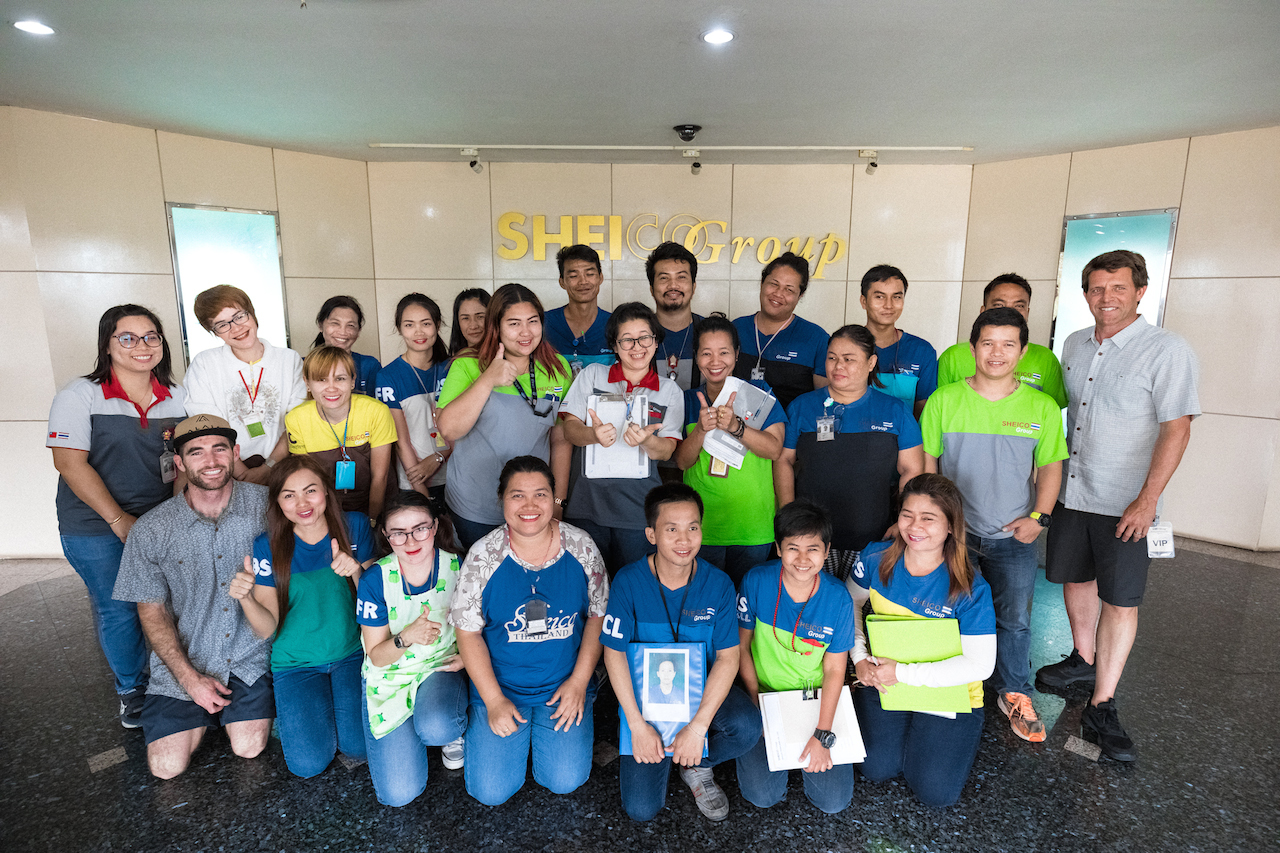
Patagonia’s Gabriel Davies On SHEICO Becoming Fair Trade Certified
SOURCE sits down with Gabriel Davies, Surf Category Manager for Patagonia Europe, to discuss the impact of their wetsuit factory, SHEICO, becoming fair trade certified, how it benefits the staff, its impact on the environment through the use of Yulex and how other companies can do the same.
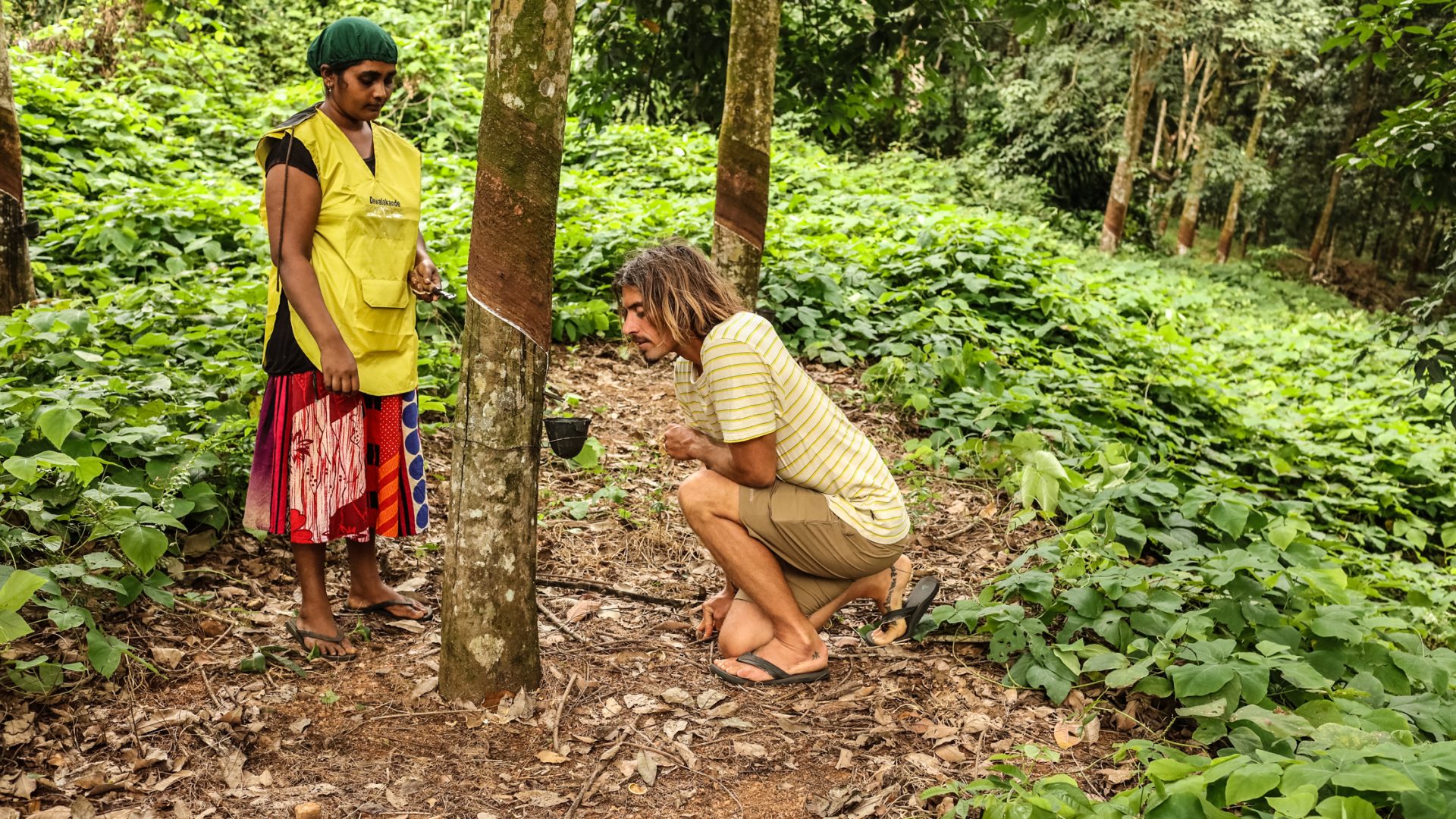
Photo: Tim Davis, Patagonia
Please talk us through SHEICO becoming Fair Trade certified. What role did you and Patagonia play in this?
I am the Surf Category Manager for Patagonia Europe, I surf in North Sea and of all the products we make, the wetsuit is the most essential to me.
Patagonia worked with Fair Trade USA and SHEICO to make the world’s first Fair Trade Certified™ wetsuits. The Fair Trade Certification helps the people behind the products to be treated with the respect they deserve. For each suit made, the workers receive a premium that can be used as a collective social investment or to otherwise elevate their standard of living. The certification also ensures that the factory complies with Fair Trade USA’s standards for safe and healthy working conditions. As of Spring 2017, Patagonia’s full line of board shorts and bikinis has been Fair Trade Certified™. Currently, Patagonia has more Fair Trade Certified styles than any other brand.
Patagonia’s factory, SHEICO, make most of the wetsuits in the market, so helping SHEICO earn Fair Trade certification raises the profile of Fair Trade throughout the surf industry and allows other brands to easily join in, if they so choose. Once the factory has been Fair Trade certified all other brands need to do is pay a premium per the cost price of each suit to become part of building more socially responsible suits.
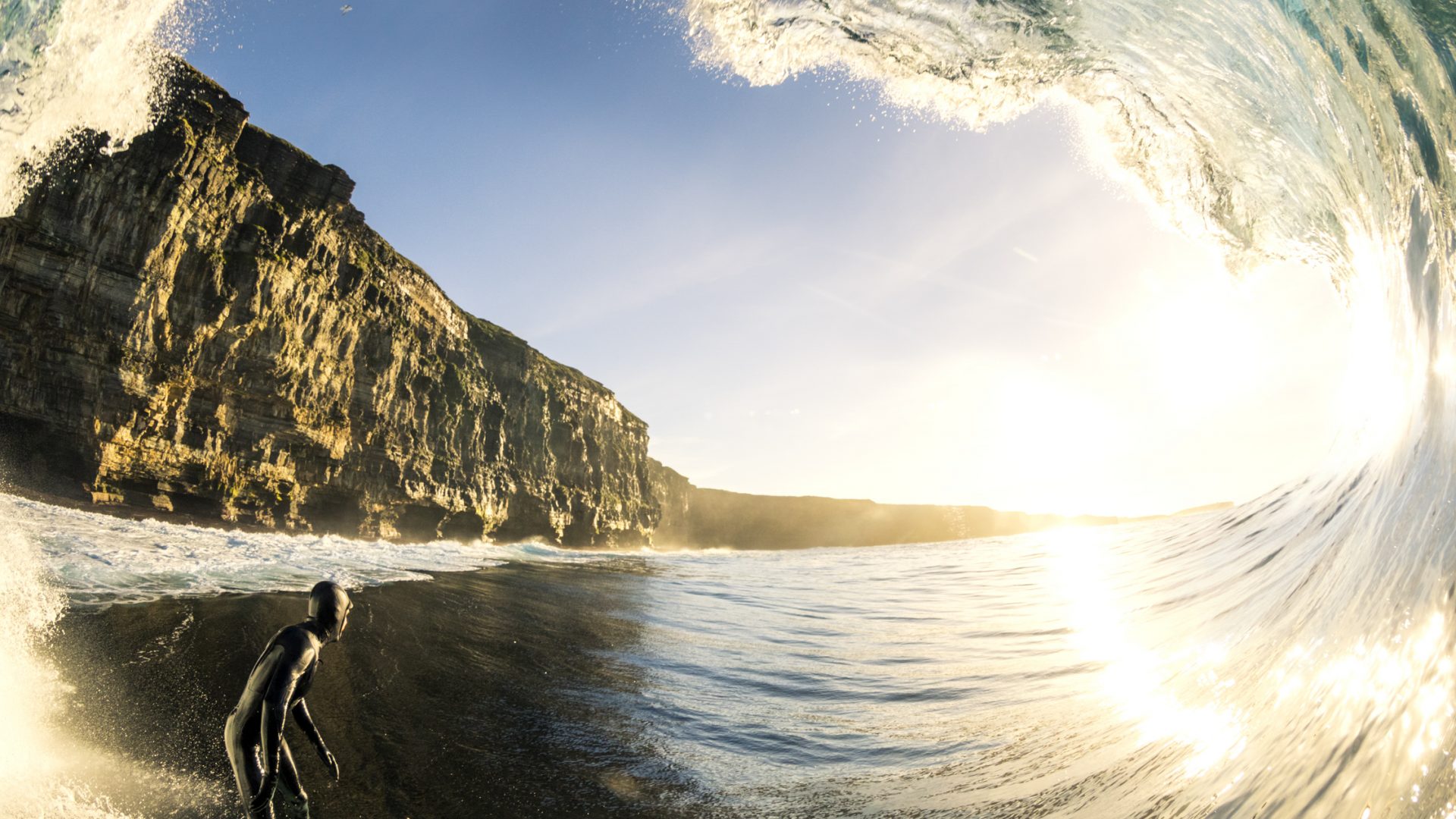
Photo: Al Mackinnon, Patagonia
How long have you been working with SHEICO, what have been the highlights of the partnership and how did you accomplish those highlights?
We’ve been working with SHEICO since we started making suits, but the turning point for us was in 2014, when we dropped the first wetsuit containing Yulex FSC Certified natural rubber. From that point we were only ever going to head in one direction. It is great to have partners open to pioneering with more environmentally friendly materials and development.
The next step was introducing the world’s first neoprene-free suit in 2016 – a culmination of 10 years of R&D and over 200 material trials with partners, The Yulex Corporation. From the start we openly offered this to the rest of the industry, on the basis that using Natural Rubber from FSC certified sources reduces carbon emission by around 80%.
The new suits have better performance than ever before. Now our next step is working to improve the Supply Chain and the social aspect of supporting the highly skilled people who make our suits, thus changing the industry for the better.
Could you explain just how SHEICO being Fair Trade certified makes them different from a wetsuit manufacturer that is not?
It’s the most basic way of showing respect to the workers that make the gear we play in and supports the people behind the product. Each wetsuit is handmade by very skilled workers and Fair Trade is the first way to support them. The workers themselves decide democratically how their Fair Trade premium is spent, which also requires an open dialogue with factory owners. This can double down efforts to support the workforce and their needs.
In our existing factory partners, the premium has been spent on healthcare, childcare, medicine, toiletries or simply as a cash bonus. The programme also promotes worker health and safety and social and environmental compliance and encourages better ongoing communication between workers and management. As of July 2017, more than 15,700 people working in factories that make Patagonia clothing have benefited from the programme.
What would you say to competitor wetsuit brands who say Yulex is inferior to regular neoprene?
We were excited to find a renewable material that performed as well, or better, than traditional neoprene. The new suits have more flex in the foam and they surf great, which I guess is the most important thing. They are lighter and more flexible than we have had in the past.
Natural rubber is still the material of choice for a wide range of products that cannot fail and demand performance, such as airplane tyres and medical gloves. It is both stronger and more flexible than its synthetic substitutes. Its strength, elasticity and consistent stretch transfer superbly into wetsuits. This means that not only are we not contributing to deforestation, Yulex natural rubber is a step forward for performance, too. It is sustainable and renewable. The alternative petro-chemical, or limestone neoprene, require using non-renewable raw materials and vast amounts of energy to create a wetsuit. That is not a long-term answer.
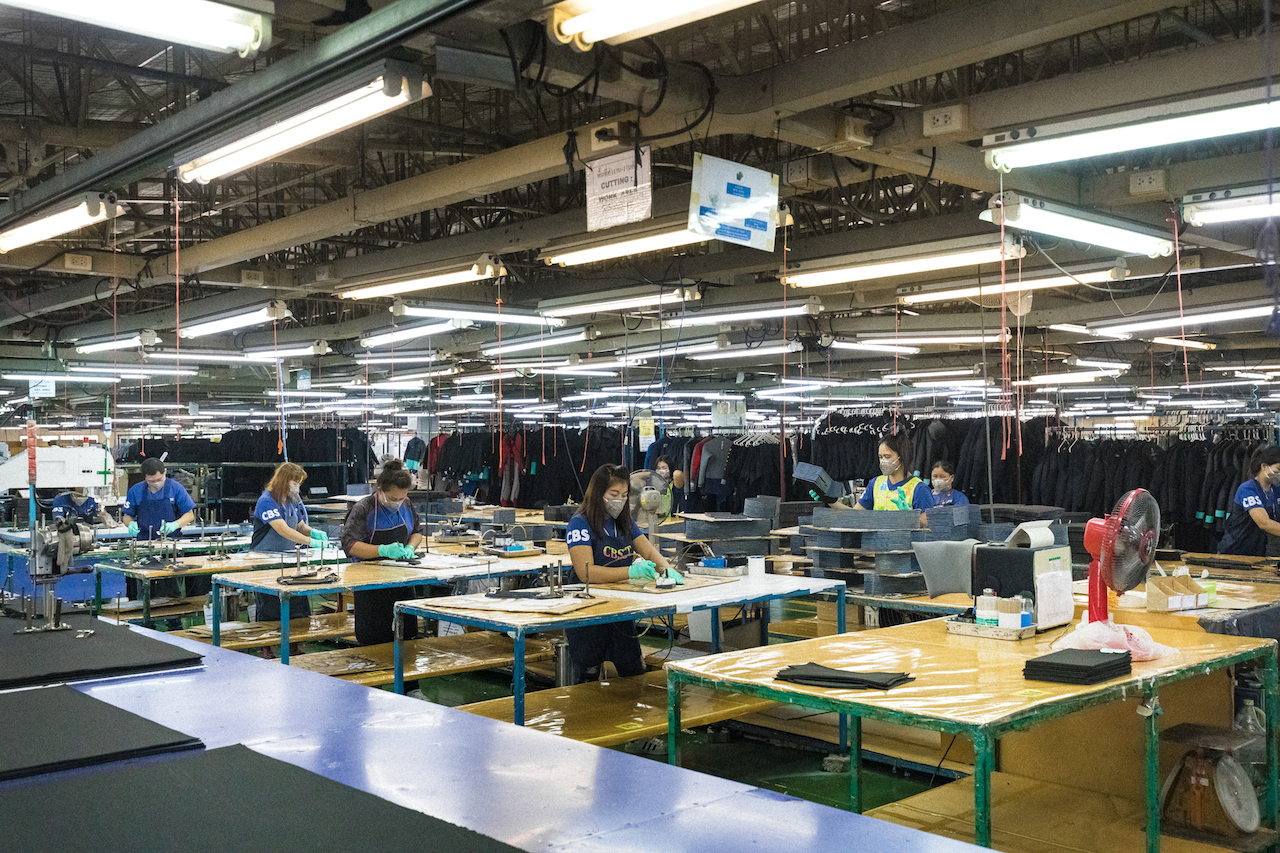
Photo: Ryan Craig, Patagonia
What are the remaining facets of your surf business you hope to overhaul with eco/sustainable endeavours?
To go back to the mission statement, every action we take comes back to this guiding principle: Build the best product, cause no unnecessary harm and use business to inspire and implement solutions to the environmental crisis. This runs through every area of the business and reminds us whether we are on the right path. More and more styles and factories will become Fair Trade Certified. We have all the swim, boardshorts and suits Fair Trade Certified, as well as many best sellers within logo wear, fleece and sportswear.
We’ll work on tweaking the remaining ingredients in the suit, which we know aren’t clean. The job is never done. We added in recycled car tires to replace ‘Carbon Black’, the next biggest ingredient. We solution dyed the linings which saves 100 litres of water and CO2 per suit, and use cleaner, water-based glue, free of VOCs. The wetsuits are a constant work in process, from both product and supply chain perspectives.
What can we as surf media do to better inform retailers and customers about the merits of a fair trade wetsuit industry?
We want as many brands as possible to switch to Yulex® natural rubber, from sources that are Forest Stewardship Council® certified by the Rainforest Alliance and to invest in Fair Trade Certification for their suits. In this way, we can – together – have a far greater positive impact than anything that Patagonia could do alone. Both the surf industry, the consumer and environment will benefit.
How are you going to be helping retailers to tell the Fair Trade story in wetsuits?
We launched our suits alongside the first European Worn Wear Surf Tour. Dates are here.
We will be making repairs on all brands of wetsuits, as well as repairing surf (and other) apparel. All brands are welcome. According to WRAP UK, using clothing an additional nine months reduces the carbon, water and waste footprints by 20-30% each. Additionally, repairing and reusing usually requires less resources than the energy and chemicals required to recycle a garment. Imagine if every suit could last a season or two longer? It would make a huge collective impact.
We believe that one of the most responsible things we can do as a company is to make high-quality product that lasts and can be repaired, so you don’t have to buy more of it. Our multi-faceted Worn Wear programme includes a trade-in programme, shopping used Patagonia gear online (wornwear.com US only), repairs through DIY workshops and tours, and responsible apparel recycling practices.







